Category Archives for Short Stories
Short Story vs Novella
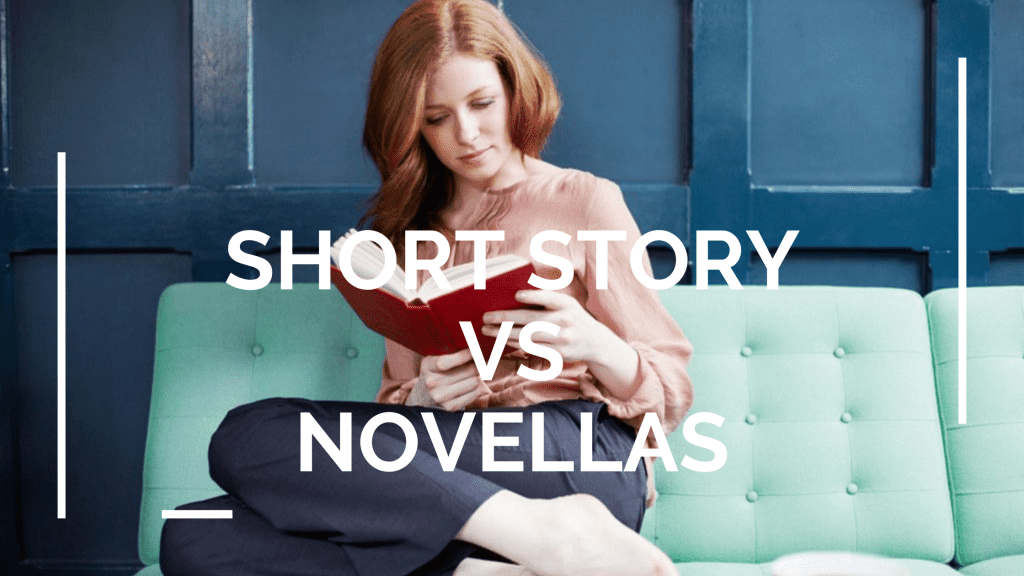
Short Story vs. Novella – The Comparison Guide [2023]
Writing a successful story requires planning and creativity. Whether you’re writing a short story, or venturing into the world of novella writing, your story has to have purpose.
It needs to grab your readers’ attention with detail and character development while adhering to specific guidelines based on length.
To get started, authors and writers alike need to understand the distinction between short stories and novellas to create an engrossing narrative that engages audiences of all ages. So let’s explore the differences between these two genres so you can determine which direction is right for you!
Exploring Their Unique Narratives and Impact
In the vast landscape of literature, writers have always found innovative ways to convey their stories and captivate readers.
Two such compelling forms of fiction are a short story and novella. Both share similarities, but they differ significantly in length, structure, and storytelling possibilities.
In this article, we will delve into the essence of a short story and novella, exploring how they are crafted, the advantages of longer novellas, and when to employ shorter short stories to achieve the desired effect.
1. Understanding A Short Story and Novella
Short Story
A short story is a concise, self-contained narrative that typically revolves around a single character, event, or theme.
Unlike novels, short stories aim to deliver a powerful impact with limited words, making every sentence count.
The essence of a short story lies in its brevity, often ranging from 1,000 to 7,500 words.
Within this concise space, authors must skillfully craft character development, setting, conflict, and resolution to create a memorable experience for the reader.
Novella
Novellas, on the other hand, occupy the literary space between short stories and novels.
While there is no strict word count to define a novella, they generally span between 20,000 to 50,000 words.
This extended length allows authors to delve deeper into character backgrounds, explore complex plotlines, and develop more intricate settings.
Novellas offer authors a chance to create a more nuanced and elaborate narrative without the commitment required for a full-length novel.
2. How to Write A Short Story and Novella
Writing A Short Story
To craft a compelling short story, authors must focus on economy of language while maintaining emotional depth.
Every word must serve a purpose, and extraneous elements should be trimmed. A strong opening is crucial to grab the reader’s attention immediately, and concise character development should follow.
Effective dialogue and well-paced action are essential elements in creating a vibrant short story. The resolution should leave a lasting impact, prompting readers to reflect on the themes and messages conveyed in the tale.
Writing A Novella
When writing a novella, authors have more space to explore complex characters, intricate plotlines, and multi-layered themes.
While the pacing can be slower compared to short stories, it should still maintain a sense of purpose and avoid unnecessary detours.
Novellas afford authors the freedom to delve deeper into character psychology, provide more detailed descriptions of settings, and build tension gradually.
Nevertheless, the art of restraint remains essential even in longer works to maintain a captivating narrative flow.
3. The Advantages of A Longer Novella
Room for Depth
The extended word count of novellas allows authors to develop more complex characters and explore their motivations and emotions in greater depth. This added dimension can create a more profound emotional connection between the characters and the readers.
Nuanced Plotlines
With more space to unfold the plot, novellas can accommodate intricate story arcs and subplots.
This enables authors to engage readers with a captivating storyline that is neither rushed nor underdeveloped.
Exploring Themes
Novellas provide ample opportunity to delve into profound themes and explore their various facets.
Authors can use the extra length to subtly weave in underlying messages and provoke thoughtfulness in readers.
Short Time Commitment
For readers seeking a satisfying reading experience without investing the time required for a full-length novel, novellas offer a perfect solution.
They can be consumed in a single sitting, making them ideal for busy individuals or those looking for a quick literary escape.
4. When to Use A Shorter Short Story
Impactful Themes
When a story revolves around a single, powerful idea, a short story can deliver the message effectively.
The brevity allows for a focused exploration of the theme, leaving a lasting impression on the reader.
Experimental Narratives
Short stories provide an excellent platform for writers to experiment with unconventional narrative techniques.
Writers can play with structure, point of view, and other literary elements, pushing the boundaries of storytelling.
Limited Space for Exploration
Certain ideas are better suited for short stories due to their limited scope.
Attempting to stretch these ideas into a novella might dilute their impact, making short stories the better choice for concise, impactful storytelling.
Time Constraints
Writers may opt for short stories when they have limited time to dedicate to a more extended project.
Short stories allow them to practice their craft, experiment with new ideas, and complete projects more quickly.
Conclusion
A Short story and novella offer distinct advantages and serve different purposes in the world of fiction writing.
While short stories excel at impactful storytelling with limited words, novellas provide the space for more extensive character development, plot complexity, and thematic exploration.
Aspiring writers should experiment with both forms to discover their unique strengths and develop their skills in crafting captivating narratives.
Ultimately, whether it’s the brevity of a short story or the depth of a novella, each has the power to leave a lasting impression on readers and enrich the literary world with its distinct offerings.
ShareShort Stories Prompts
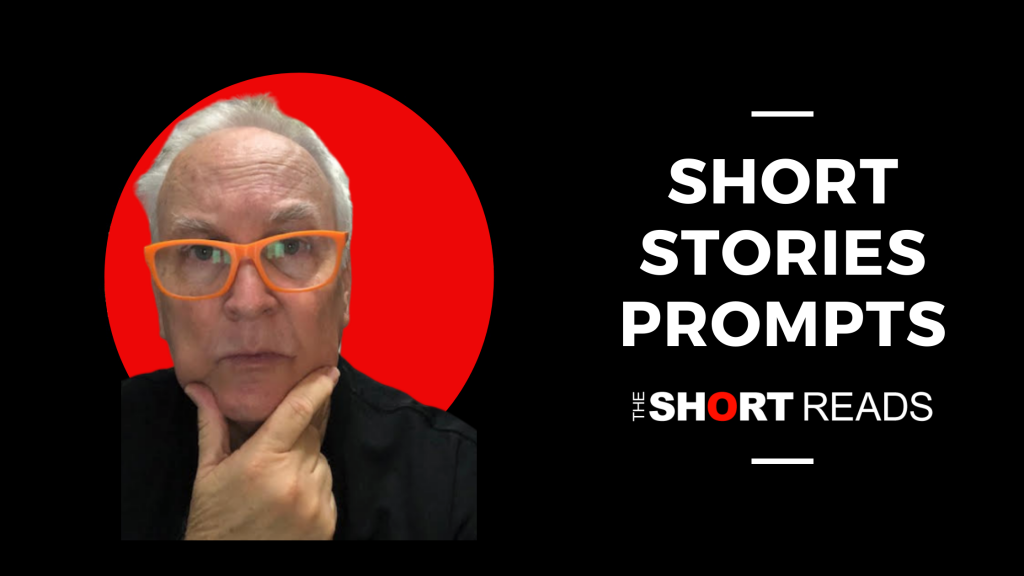
How To Use Short Stories Prompts For Better Short Stories
Short stories prompts are a great way to get your creative juices flowing. They also serve as an excellent form of entertainment when you need it!
What are short stories prompts?
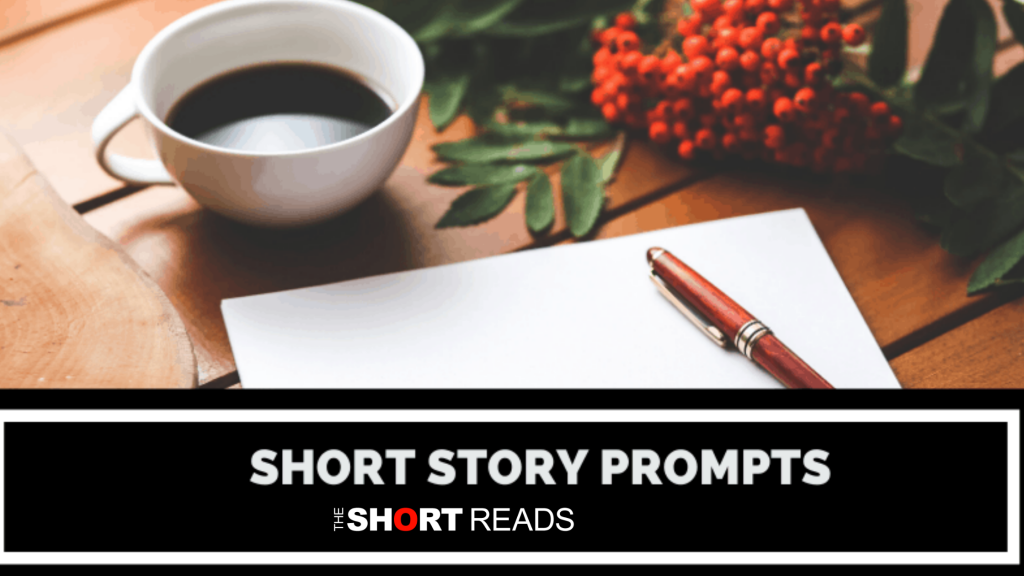
Short story writing prompts are just what they sound like: a set of random words or phrases that encourage you to write a short story. Prompts can be anything:
– One liner ideas (e.g., I woke up with blood on my hands)
– Descriptions (e.g., old manor house, abandoned asylum)
What is the purpose of a short story writing prompt?
Short story writing prompts are a great way to deal with writer’s block or even just to relax and have some fun! It can be tough sometimes to come up with fresh and interesting ideas for stories. These short story writing prompts can help you find inspiration and get your creative juices flowing.
Short stories are also a good way to practice your craft. They allow you to experiment with characters, settings, and storylines without investing too much time. And once you’ve written a few stories, it becomes easier to come up with new ideas for your next one.
What should I do if someone steals my short stories prompt?
If someone has already used the prompt that you want to use, do not despair! You can always take the prompt in a different direction. For example, if you see someone has already written a story about an abandoned asylum, do not decide to write about an old manor house just because that was your original idea.
You don’t have to credit or mention anyone else’s work when using prompts. Everyone is here to write their own stories and share them with the world.
If you still think that somebody has stolen your prompt, please let us know about it by sending an e-mail to admin@shortstoryprompts.org . We can remove any prompt if we suspect plagiarism.
Remember, creativity is the hallmark of a good writer!
The best way to create short stories prompts
to just take a pen and paper and jot down whatever comes to your mind. These can be anything: random words, phrases, sentences, lyrics from songs you like or memorable quotes from your favorite books. You could even use prompts that other people have come up with!
Creativity is the key, so don’t worry about coming up with the most original prompts. Just relax, have fun, and enjoy yourself.
How to get started with short stories prompts
Here is a list of 10 short story prompts that will give you some ideas for what to write about:
1) What if the world was overrun by zombies?
2) Write about the last conversation with your best friend before they died.
3) Write about two people who find themselves in love but their relationship is doomed from the start.
4) Describe one day in the life of someone living in poverty.
5) What would happen if all books were banned and no one could read them anymore?
6) Write about how your town changed after 9-11.
7) A man goes on vacation without his family on his birthday for the first time in 15 years.
8) Describe what happens when an alien visits Earth on a reconnaissance mission.
9) Write about one day of your life where everything goes wrong.
10) Imagine you are living in Ancient Greece and write about how you feel about being a slave or a master.
How do I write a short story with these prompts?
After you’ve decided on one or more short stories prompts that you want to use, the next step is writing your story. The best way to go about this is to just take it one word at a time and let the words and characters come to you naturally.
To create a story around one of these prompts, there are no hard and fast rules. You might want to begin by asking yourself some questions about your narrator or protagonist:
– Who is he/she?
– Where does he/she live?
– What is the conflict in this story?
– How does he/she feel about it?
– What is at stake?
Once you’ve established some basic facts about your character and his/her circumstances, just let the story take its course. It may help to write a rough outline of events before you begin writing, but don’t get too bogged down in details. Just write and see where the story takes you.
When writing a short story, what makes it good? There are many components that make up a good short story, but here are some of the most important ones:
– Unique characters with interesting quirks.
– A unique setting.
– Intriguing dialogue that reveals the attitudes and personalities of your characters.
– Succinct writing that illuminates the story but does not bore or distract your readers with too many details.
What are the best ways to write a short story?

The best way to write a short story is to let the words flow naturally. Don’t overthink your story or try to control every word that you write. Let the ideas come to you instead of trying to force them out.
Here are some other best practices for writing short stories:
– Start with a compelling image, line of dialogue, or premise. This will give readers something interesting to latch onto.
– Be prepared to make some changes if the story does not seem to be working out. This may involve completely revising your story, or simply cutting certain parts of it, depending on what is needed to make your narrative stronger.
– You can also experiment with different types of short stories , such as sci fi short stories, literary short stories, mystery short stories, etc.
– At the end of your story, you can also choose to leave it open ended if that feels right for what you’re writing. This means that there is no single perfect conclusion or solution to the problem in your story. It’s up to readers to decide what happens next and make their own inferences.
– Edit your short stories until you’re satisfied with them. Read through them out loud so that you can catch any grammatical errors or awkward sentences.
Do I need to write dialogue in a short story?
You can choose to include or exclude dialogue depending on what works for your narrative. If the story would flow better without it, you can avoid dialogue altogether.
If you do choose to include dialogue, there are a few best practices that you should keep in mind:
– Dialogue should never be used as an information dump — where the characters just talk and talk about things that we really don’t care about. Every line of dialogue should either reveal something new and interesting about your characters or move the story forward.
– Each character should have a unique voice and personality, which will be revealed through their dialogue.
– Keep your dialogue as concise as possible. This will make it easier for readers to process and also help them feel the rapid pace of conversation.
Does every short story need a protagonist?
Some short stories, such as flash fiction pieces, may not have a protagonist (or any real characters at all). However, the majority of short stories do indeed feature protagonists.
What makes a good protagonist? Your protagonist should be relatable and interesting enough to keep readers’ attention throughout your story. Although they don’t need to be likeable or perfect, readers should understand and sympathize with your protagonist in some way.
Some other qualities that you might want to include in your protagonist:
– A conflict of some type
– An internal or external goal
– A flaw or problem that they need to overcome
How do I choose the point of view for my short story? The point of view is the perspective in which you’re telling your story, such as first person or third person. It’s up to you to decide what works best for you and your narrative, but here are a few things that may help:
– First person point of view involves “I” and can make a short story feel more intimate and personal. It can also be more difficult to pull off well since you need to get into the head of one character.
– Third person point of view lets you show multiple characters’ actions and thoughts, but it’s often less personal than first person. This may work better for longer short stories with more characters involved.
– Omniscient third person is a great choice if you have a larger cast of characters who all need to be fleshed out. It can also help in stories that require a lot of world-building.
– If you’re not sure what point of view to use, try writing your short story in multiple perspectives and then choosing the one that feels most organic and natural for your narrative.
How long should a short story be?
This is completely subjective and will vary from writer to writer. How many words you use is up to you, although you can always try checking your word count by pasting your text into quick word counter.
Conclusion
Your story is unique. It deserves to be told. We’ll help you write it with our short story prompts and writing exercises for kids, teens, or adults that will get your creative juices flowing! Come on in and explore the world of imaginative storytelling today.
Grab 2 free short reads when you join our library here
ShareShort Stories Ideas
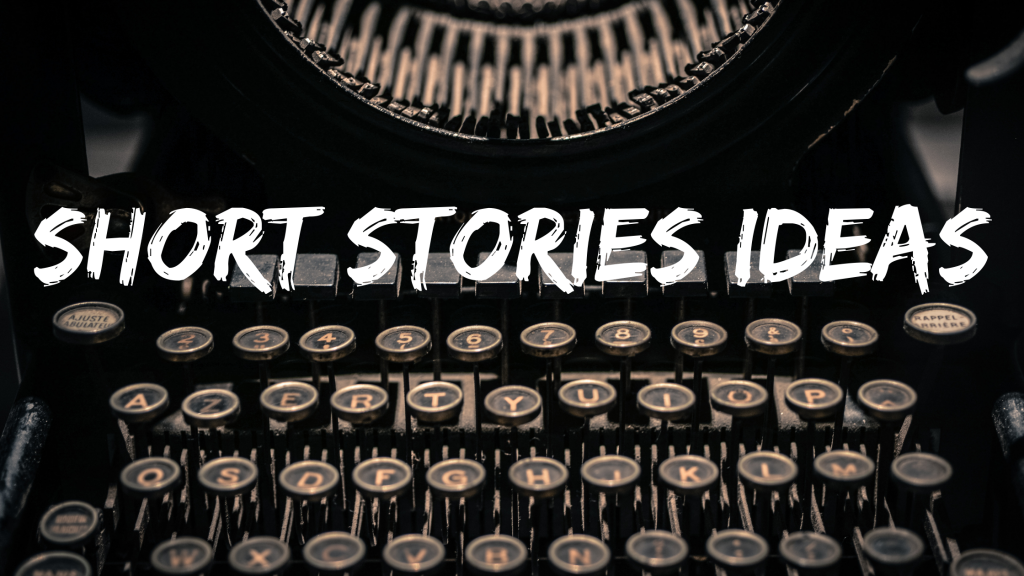
Short Stories Ideas
If you are looking for short story ideas, this blog post will give you some inspiration. We have compiled a list of short stories with different themes that may appeal to your tastes. Find the perfect one for your next reading adventure!
Let’s dive deeper into what short stories ideas are out there.
Ideas for short stories
Short Stories About Your Life

Have you ever thought about writing your life story but felt daunted by the task? Think about those pivotal moments in your life that have changed you as a person and how they shaped you into the person you are today. You can wrote these into a series of short stories or one full blown book, it’s up to you!
I’m sure there are a few things you’ve gone through in your life that would make for an interesting read.
Think back to when you were a child and the funny, quirky things only children do. When I think about it, I have so many memories that I wish I could relive just one more time.
I remember my first day of school, the first time I rode a bike all by myself and how terrified I was at the prospect of going to high school.
Thinking about these moments is bringing back so many memories that honestly, I’d love to have them written down for me to look back on again in years to come.
Short Stories On Your Favorite Topics
There are some topics out there that have been written about so often, you may struggle to come up with enough new ideas to write a short story.
Instead of trying something completely different, why not think about writing a short story based on an idea that has already been done?
Let’s say that your favorite topic is cats, get out some pencils or open up your word processing program and start writing.
Don’t be afraid to abandon the story if something better comes along while you’re writing it. If you can come up with new ideas on what might happen next, great! Write them down and save them for later drafts. I
f not, don’t worry about it and just go with what comes naturally.
Short Stories Under 500 Words
Writing a short story doesn’t have to be long and winded like the great classics of literature such as War and Peace, Moby Dick or The Hunchback of Notre Dame (all super long books that I have no intention of reading).
There are actually competitions out there that only accept stories under 500 words. Why not take a chance on creating something unique in just a few words? You can do it!
Short Stories With A Twist Ending
One popular type of short story is the twist ending. You should try to come up with a twist ending so mind bending that your readers won’t see it coming from a mile away.
It should leave them feeling as though you have cheated them out of an opportunity to solve the mystery themselves.
A good twist ending should leave the reader thinking about why they didn’t work it out beforehand and hopefully questioning what they think is true.
Short Stories On Your Favorite Place Or Destination
If you live in the middle of nowhere, your favorite place might be at home because everywhere you go is like your favorite place.
I’m moving to Cabarita Beach this month and my favorite destination thus far has been Bangalow, NSW.
What’s yours?
Writing a story based on your favorite place should be easy because you know it so well. Make sure you include every little detail that makes this place unique to you or else your readers may think it’s not your favorite place at all.
Still need more ideas? Here’s more short stories ideas generator
Short Stories About Food

Food is a popular topic in literature and, as such, it’s no wonder that many writers have tried their hand at writing stories about food.
Just think about some of your favorite foods and let your imagination run wild! If you’re feeling stuck, why not try writing a story from the point of view of a food item?
You can make it humorous or heartfelt – either way should be interesting to read.
Short Stories Based On A Song Lyrics
I used to work at an Italian restaurant where my coworker would always use song lyrics as topics of conversation while we were serving our customers. I noticed that people would stop and listen to her whenever she wanted to share a lyric but as soon as she finished saying what she had to say, they would walk away again.
This seemed like something that could be turned into a short story so I started jotting down song lyrics about love lost and found. Just be careful about copyright laws though.
Short Stories Based On Childhood Memories
If you’re struggling to come up with an idea, why not try writing a story based on your memories of childhood?
Think about some of the things that happened during your youth and let them inspire you to write something new.
You could even use fictional characters in these real life events if you wanted to or create some entirely new event. Anything goes!
Short Stories About The World We Live In
The world is filled with many mysteries, but the biggest mystery of all (at least to me) is how people can see the earth as a tiny ball spinning through space when you are standing on it!
This would be an interesting topic for anyone who loves science fiction or just wants to have some fun with their imagination.
Stories About The Objects We Use Everyday
I’ve always thought that my wallet was like a miniature city in itself because of all the compartments and pockets within it.
There’s one pocket for my credit cards, another for my business cards, one for my notes, one for my coins and so on. Each of these items had their own story to tell if we could just open them up and listen!
You can do the same with any object that you use every day – your keys, glasses or even refrigerator magnets.
Short Stories About Love And Romance
If you’re feeling a little sappy, why not try writing a story about love and romance? It doesn’t have to be traditional in any way. You can write from your point of view or that of your favorite fictional character; you can write something new or create something based on an existing idea (such as Shakespeare’s “Romeo and Juliet”).
Short Stories On The Things That Scare You
Everyone has something that scares them – haunted houses, the dark…even social situations sometimes. Think of what terrifies you the most and try to work it into a short story or perhaps even a novel! You can take inspiration from other stories if you want – perhaps your idea will be the next great horror story.
Short Stories About The Innocence Of Childhood
A child’s mind is something that needs to be protected because it is so young and pure, but it can also inspire some great stories. For example, you could write about the innocence of childhood with your own characters or by writing a story from the point of view of one of your favorite fictional children.
Short Stories About The Power Of Imagination
Have you ever been so wrapped up in a book that the character’s adventures seemed to come alive? I’m sure we’ve all experienced this at some point and it would be fun to write about something similar!
You could even include other elements from your life or just have a little fun with your imagination. Just imagine what you could write about!
Short Stories About The Things We Lost As Adults

The world is a harsh place and as we grow older, we lose things as well as gain new ones – old friends who move away or die, relationships that end and sometimes we even lose hope or faith in something we once believed in.
You can write about these losses and introduce new characters to find hope again (or perhaps show how they’ve changed due to this). Short stories ideas
Short Stories About Childhood Fears
When we were children, there were always things that scared us – monsters under the bed or in the closet, ghosts hiding in dark corners…the list goes on.
Think of your favorite things to be afraid of and write a short story about them! You can even include other elements from your childhood such as toys, friends etc.
Short Stories About The Love Between Family And Friends
When we’re young, we often take our family for granted because they are just always there – but that changes as we grow older. We often move away for work or school and sometimes, family members become ill or pass on.
Write about the love between family and friends with your own characters or by writing a story from the point of view of one of your favorite fictional children.
Short Stories About Dreams And Goals
Every day, people go to school, work or even just lounge around at home – but what are their goals and dreams? You could write a short story about someone who has just been accepted into the college of their choice, achieved the career they’ve always wanted…or perhaps meet up with an old friend to find out how they’ve changed since high school.
Short Stories For Children
Children’s books can be inspiring for people of all ages. If you’re looking to write something new, perhaps try your hand at creating a short story with simpler language and more illustrations than usual! You could even adapt an idea or character you’ve seen elsewhere.
Short Stories About The Power Of Nature
Everyone knows that Mother Earth is something we should be protecting instead of destroying.
Write about how nature is our friend and it’ll always help us if we let it or perhaps you could write a story where the main character has to find the balance between nature and modern technology.
Short Stories About The Unfortunate And Those Who Take Advantage Of Them
The world is full of unfortunate people who are abused or taken advantage of by others – but this is not right.
Perhaps you could write a story about an unfortunate person whose life improves after meeting someone special…or perhaps the main character finally stands up to their abuser.
What about short stories ideas based on fiction genres:
Fantacy short stories ideas
Sci-fi short stories ideas
Romance short stories ideas
Crime short stories ideas
Conclusion
Short stories are a great way to keep yourself entertained and learning new things. We hope that you enjoyed these short story excerpts, as well as the analysis of them. It was our pleasure to share this information with you! Thanks for reading, and we’ll see you next time on The Short Reads.
Make sure you grab your free books here.
ShareWhere To Publish Short Stories
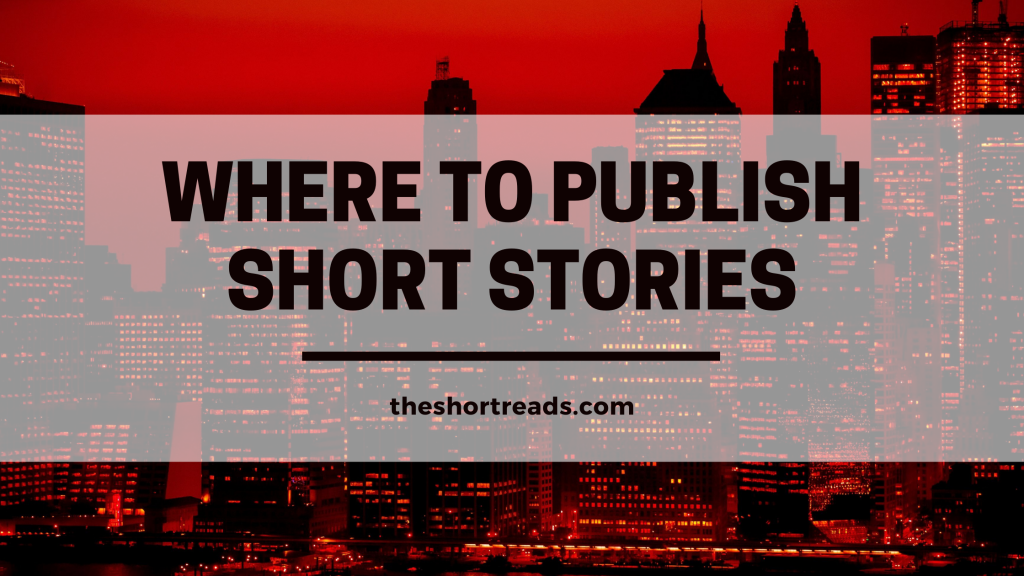
Where To Publish Short Stories
If you want to publish short stories, there are many different ways to do so. You can submit them for publication in literary magazines or with publishing houses that specialize in shorter works. Short story collections are also a way to get your work out into the world and increase your chances of being discovered by an agent or publisher who might like what they see. So where should you publish? Read on!
In this post we outline:
1. The best places to publish short stories
2. Pros and cons of each place
3. What you should consider before publishing your story
4. Do your research before deciding where to publish your story
5. How much does it cost to publish a short story online, in print, or both
6. Tips for writing a great short story that will get published!
The best places to publish short stories
There are many places to publish short stories. Some pay, others do not, but every one of them is an opportunity for you to get your work read, reviewed, and discussed by critics and readers alike.
1. The New Yorker
The New Yorker has published some of the most celebrated works in America since its inception in 1925.
If you get a story published there, it will be read and talked about for years to come. In addition to publishing work from some of the most celebrated writers alive today, they also accept submissions from emerging authors.
They have a rigorous selection process that takes place throughout the month so you need to expect a long wait before hearing back from them—if you are accepted, you will be asked to join their contributor’s stable.
The pay is good too at $200 for original fiction.
2. Tin House
Tin House is a small literary magazine that accepts stories, flash fictions, and novel excerpts from emerging writers who have not yet been published in any other major magazines or book publishers.
They pay $100 for short stories and up to 3,000 words, as well as publishing a number of flash fictions per year.
They also feature emerging novelists on their website from time to time. You can find many Tin House contributors’ work in other magazines as a result of being published here first.
3. The Paris Review

The Paris Review is one of the most famous literary magazines in America. It features stories and poems from emerging and established writers alike, as well as book reviews and interviews with prominent figures in literature such as Salman Rushdie and Junot Diaz.
Their pay scale for fiction is $0.25 per word up to a maximum of $250 (sold to one of their many international publishing partners). You can expect to hear back from them within 6-8 weeks.
4. Ploughshares
Ploughshares is another of the most respected literary magazines in America, thanks to its New England pedigree and circulation at prestigious universities around the country.
They pay $50 per printed page up to a maximum of $300 for first time authors and offer a generous discount to return contributors.
They publish a number of poems as well as short stories, but their selection process is notoriously slow—you can expect to wait around 9 months to hear back from them if you’re accepted.
5. The New York Times Sunday Magazine

The New York Times magazine recently announced a short fiction contest open to all writers, with the winner receiving $15,000 and publication in the magazine.
There is no hard word count for this contest but they want stories between 2-5 pages in length (about 1200-1800 words). This is an excellent opportunity for emerging authors who lack a literary agent or book publisher to get their work published.
6. Playboy Magazine
Playboy, like The New Yorker, is an iconic fixture in American culture and literature (after all, they featured short stories by Jack Kerouac and Haruki Murakami).
They pay $3000 per story for original fiction—which is more than most book publications will offer you!
They also feature several short stories per year—both original works and reprints of popular stories from other magazines.
If you are one of the few authors who make their final round, your story will be forwarded to Playboy’s editors for consideration.
7. The New York Times
The New York Times is another publication that offers a short fiction contest for emerging writers, but the contest is open to all writers over 18 years of age (no matter where you live).
The winner receives $15,000 and publication in the New York Times Magazine. They also offer a number of opportunities for published authors to write short pieces for them as well–which will pay $300-$1000 depending on how long they are.
Pros and cons of each place:
Tin House has one of the quickest response times from submission to acceptance or rejection, but their pay scale is relatively low compared to other magazines on this list.
The Paris Review gets a little more complicated because they have a strict 3 month wait time before you can submit again and they only accept submissions through an agent or by post—which means you have to physically mail your story to them if you aren’t a US citizen.
Ploughshares tends to have a much longer wait time but they pay the highest rate of all the magazines on this list ($50 per printed page) as well as offering a generous discount for reprints and first-timers.
The New York Times magazine offers a wonderful opportunity for emerging writers to get their work published but they only accept submissions through an agent or by post (so it’s not open to everyone).
Playboy is one of the best paying markets on this list, but you must be over 18 (no matter where you live) and be willing to write under your real name.
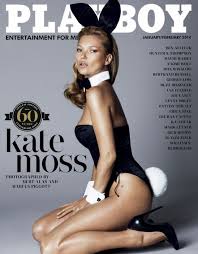
The New York Times is also a wonderful opportunity for emerging writers to get their stories published but they only accept submissions through an agent or by post (so it’s not open to everyone). The pay scale isn’t as high as Playboy but you have better odds of being accepted.
A place only accepting submissions from agents or by post makes me nervous because that means they don’t want your work to be judged by anyone other than their editors. This makes me think that maybe the pay isn’t worth it–and you’re only wasting your time if you take the risk.
What you should consider before publishing your story
The acceptance rate for The Paris Review is well below 1% and Tin House is only slightly better. If you’re trying to get your story in print for the first time, you probably shouldn’t start with either of these magazines.
I would recommend sending your story to less competitive markets if it’s been rejected or ignored by 5 other places before sending it to Tin House or The Paris Review.
1). That you are not on the list of finalists for another publication (no matter how little money they pay) until after the contest is over.
2). That your story will be printed anonymously if it makes the final round and published in the New Yorker, Playboy, or The Paris Review.
3). That the editors reserve the right to publish your story online or use it for any other purpose that may arise in the future (including publishing it again in another magazine without notifying you).
5). The specific rights they are purchasing (worldwide English, digital, post-print…etc)
6). If you can submit again if you are unsuccessful the first time.
7). How soon after they are notified of their finalist status they must submit their story.
8). If your story will be forwarded for consideration for any other publications or part of a contest that is still accepting submissions.
9). What happens to your submission if you withdraw it from consideration.
Do your research before deciding where to publish your story
I know what you’re thinking. “I don’t want to miss out on getting my story published!”
But honestly, even though each of these magazines all have one or more things going for them than the others–they all cost you time and effort if they reject your work.
There is also no guarantee that the other finalist stories won’t be picked over yours and you won’t win the contest.
It may seem like a no-brainer that if your story is selected as a finalist then it must be the best of the bunch but that isn’t necessarily true. Editors often like to shake things up and pick stories outside of the genres they usually publish (like choosing a nonfiction story in a fiction contest).
There is no harm in submitting your work to more than one publication at once or waiting until you get an acceptance before publishing–as long as you don’t tell the other publishers that’s what you’re doing.
So…if you can wait and if it doesn’t cost anything to submit, there’s no reason not to send your story out as many times as you want.
Just remember, the more places you try and publish your work, the longer it’s going to take to see if it gets published anywhere.
How much does it cost to publish a short story online, in print, or both?

If you’re lucky, free.
It’s possible to get published for nothing but it may take a lot of time and effort. Self-publishing is great because then you don’t have to pay the fees that publishing magazines charge or worry about being paid by anyone.
You can always try to sell your self-published work later if you don’t want to do the work yourself.
If you’re not sure how much it will cost, just ask–the worst they can say is “no.”
Tips for writing a great short story that will get published!
Tip #1: Don’t write about sex, drugs, or rock and roll. Think literary fiction or a literary memoir.
Tip #2: Write something that doesn’t have an obvious moral lesson. Anti-heroes are cool but not as cool as ambiguous endings. If you can avoid it, don’t have your character learning a life lesson at the end.
Tip #3: No narrators, no dialogue tags, and minimal action. A really good way to avoid a plot is to have a first-person account of someone going on a walk. Memories are great too–because they can’t really do anything except remember something that happened to them in the past.
Tip #4: A great way to make your story longer is to have it be about nothing. A lot of people do this by making the setting more important than the actual characters or action in a story. Since characterization is really hard, you can trick readers into thinking they’re getting a well-developed character by having them interact with lots of objects and places.
Tip #5: No poetry! Poetry is something you read at a reading (see above) and it’s not really considered “literature.” If you write in verse, most publishers will print it but they’ll stick your name in the fine print somewhere and none of the cool kids will know that it’s yours.
Tip #6: Make sure your story is under 2,500 words long. There are some magazines that might publish up to 3,000 words but honestly–anything over that and you’re just wasting trees.
Tip #7: If you write about death or class issues, make it really easy on everyone involved–including yourself–by not going into any detail. All you need is a quote from a dead guy and a token person of color or some kind of “outsider.”
Tip #8: No humorous stories! Humor isn’t really taken seriously so if you’re trying to get serious literary cred, skip the jokes.
Tip #9: Most short story contests aren’t worth entering. You can win a contest and it won’t get your work published at all or you can get a publication to buy your story for money–and that’s the only place they’ll publish it. S
ome small magazines might include a contest as part of their submission process but none of them are big enough to get you anything more than bragging rights.
Tip #10: If someone says that they don’t want to publish your story because it isn’t right for their magazine, that doesn’t mean they hate you and/or your writing–just take it as a compliment and send it off somewhere else.
Conclusion

There are many places to publish short stories, and it’s up to you which one is best.
But for the sake of time and effort, we recommend publishing your story on Amazon Kindle Direct Publishing (KDP), Wattpad or Scrivener.
These sites enable you to write a story in chunks while still keeping an audience engaged with new episodes; they also offer detailed analytics that will help you see what parts of the story resonate most with readers. If you’re not ready to self-publish yet, there are plenty of other options out there – just do some research first!
We’ve outlined the best print options for you above. Check them out
Have you claimed your two free books yet?
ShareWhat Length Is A Short Story?

What Length is a Short Story?
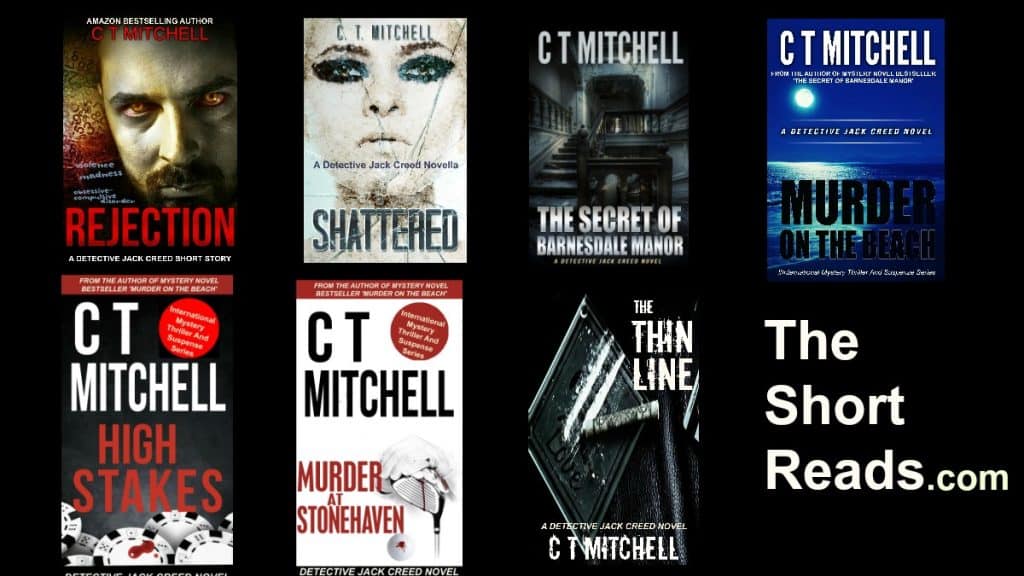
What length is a story is short? It sounds like a brain teaser, but the question is asked by many aspiring short story writers – what is the right length for my short story?
Of course, the answer will be different depending on the author, the story and the intended publication. But even though there isn’t a single solution to creating the perfect story length, there are a few consistent ways to decide how long a short story should be.
What is a Short Story?

A short story is a work of fiction that is relatively quick to read. That’s about the only thing that is set in stone – while most short stories focus on a single plot line, with few characters, through a short space of time, other short stories might be more complicated.
Authors might use a short story format to explore an interesting character, or to quickly set up a world for a storyline to play out. Short stories come in a wide range of genres, although some genres are more popular for short stories than others.
More than the length or genre, the most important part of a short story is the impression it has on the reader in a short amount of time. The author has to find the sweet spot between carefully choosing their words and telling a meaningful, impacting story that will stay with the reader.
Story Length
Of course, there are many opinions on the correct word counts for each classification of story length – however, the following types of story length are based on generally accepted word counts:
- Microfiction: Up to 100 words
There is a very famous piece of microfiction attributed to Ernest Hemingway – legend has it that in order to win a bet, he wrote a story using only six words:
“For sale: baby shoes, never worn.”
Microfiction (sometimes called microflash) is extremely difficult to write well, but there is a market for this story length. Publishers can easily fit microfiction onto a page, making it desirable for some publications.
- Flash fiction: 100 to 1,000 words
Flash fiction delivers humour, romance or fantasy in a bite-sized story. Often found in magazines and online publications, flash fiction is a snapshot of a story that can be included on a page and quickly consumed by the reader.
- Short story: 500 to 7,500 words
The most common word count for a short story falls within this range. Each publication will have its own preference, but 7,500 words is a widely accepted upper limit. That being said, others consider any work less than 10,000 words to be a short story.
Once an author exceeds 10,000 words, they have left the “short story” grouping and are creating a novelette (7,500 to 25,000 words), a novella (10,000 to 70,000 words) or a novel (50,000 words or more). Each of these word lengths have their own strengths and weaknesses, but they are unlikely to achieve the convenient length and punchy impact of a short story.
Choosing a Length
Obviously, there’s a lot of leeway in how long a story can be and still classify as a short story – a work of 500 words and another of 7,500 words are both short stories, but are likely to be very different.
There are other factors to think about in order to decide the right length for a storyline. Some aspects to consider when deciding the right length are:
- How long does my story take to tell? It sounds simple, but it’s really important – a story should use as many words as it needs to tell the tale. Lengthy stories might need a sharp eye to cut out unnecessary passages, and authors writing stories on the shorter side have to pay special attention to setting the scene and how they develop characters.
But ultimately, the story should be as long as it needs to be – no more, no less.
- Is it likely to get published? Some short story lengths have wider appeal to a range of different publications. For many short story publications and competitions, a submission of over 3,500 words will have less chance of being accepted.
If the short story isn’t specifically written with a publishing destination in mind, it might be helpful to keep it on the shorter side to increase its appeal.
- Does it meet publishing guidelines? If the story is written with a specific destination in mind, the publication or competition will have rules that the author should stick to in order to increase the likelihood of acceptance.
Publishers and competitions will almost always have submission guidelines available, and the word count is an important factor that decides whether or not a story will make the cut.
- Can it be read in a single sitting? Edgar Allen Poe described the ideal short story length as one that is able to be read in a single sitting, and it’s a helpful concept for the author to keep in mind.
Modern readers are often time poor and reading on mobile devices, so a short story that is gripping but can be quickly consumed is likely to find a wide audience.
Creating Short Stories
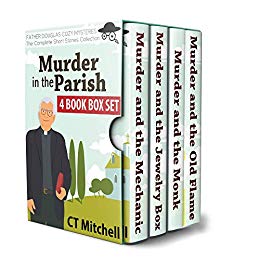
The most basic definition of a short story is a work of fiction that is between 500 to 7,500 words long, but there are many other factors that can influence the exact number of words included in a short story.
Short stories have to keep the attention of their readers. They have to fit in well with the publication they are destined for, meeting word counts and other criteria. They have to leave an impression on their readers. And of course, they have to be worth reading.
If a story is well told, it will have appeal regardless of the length. Creating a short story is an excellent way to provide readers with an easily consumable piece of fiction that draws them in and leaves an impression.
Really, the perfect short story length is however long it takes to accomplish that feat.
Have you claimed your short story?
ShareAre Short Stories Popular In 2024?
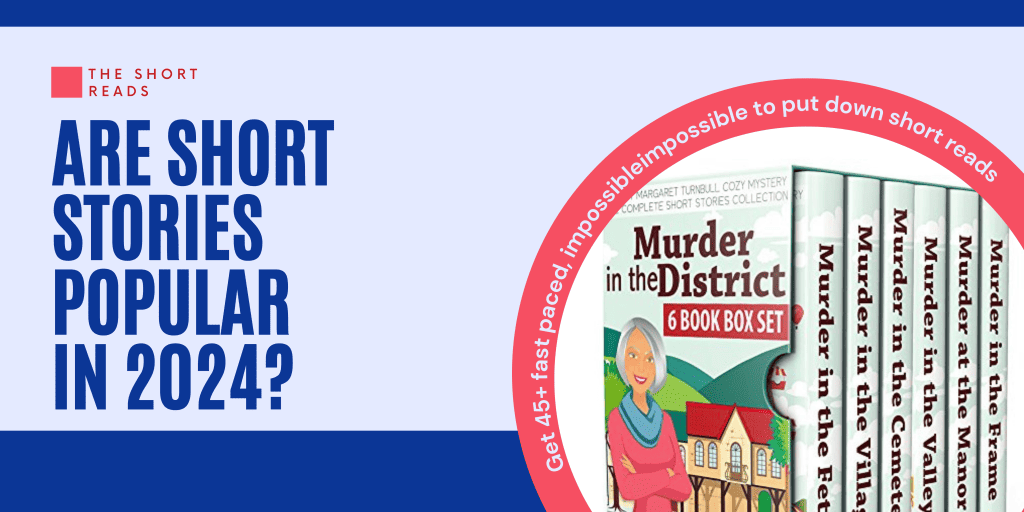
Are Short Stories Popular? You bet they are. They are loved by both veracious and non readers and allow the writer to hone his/her craft. Out attention is small – short stories fill the need.
Short stories remain popular because they can using be read in a single sitting.
Veracious reads love short stories as do non-readers wanting to get into reading.
Fiction short stories are the most popular particularly in the large genres of romance and crime fiction. Are short stories popular?
Who reads short stories?
What short stories are read most?
There was a time when good writers could make an extraordinary income from short stories, and often even full-length novels were published piece-by-piece in major publications.
Times have changed, but are short stories popular still? This type of writing has had a slight lapse in popularity, but with today’s modern lifestyle short stories are becoming more important than ever.
Short Story Authors
While great novelists can write short stories and vice versa, confining a story to a limited number of words (normally under 7,500) and keeping the writing compelling takes a very special set of skills.
As a direct result of the limited word count, authors must make every sentence count. That makes for a more defined purpose for the story, and therefore a more precise delivery.
They must be attention-grabbing and have a satisfying conclusion, while still drawing readers to come back for more.
For the author with many ideas, it’s a great opportunity to turn out a number of stories and to see which ones perform well.
Writing many stories at a time is fantastic practice, and it hones important skills like developing characters and improving dialogue.
Short stories might bring in less money per piece, but the author is able to finish them much more quickly.
Many of the most famous authors started out writing short stories, or began writing after their major novels took off – George R.R. Martin, Annie Proulx, Stephen King, Roald Dahl and Jane Austen are just a very few names from an extremely long list.
Many writing courses also prefer writers to create short stories instead of excerpts from longer works.
Why Short Stories?
Short stories are a quick window into a world, and readers generally come in cold with little understanding of what to expect.
The author has a very short window in which to grab their attention, introduce them to the world, create a storyline, and finish in a way that leaves readers keen for the next story from that author.
Because of the format, authors can jump into wildly different worlds, without the concentrated effort of creating context and world-building that usually applies.
The same goes for characters – readers are devoid of expectations, allowing authors to create quirky, memorable characters with pared down dialogue that advances the story.
Short stories allow authors to push boundaries, and to trial ideas that would be difficult in a novel. Cliff-hangers are common, and the reader understands that they are just peering through a window to see a quick flash of a story, with the implied understanding of a whole other world to explore and consider long after the story is finished.
Practically, short stories are a quick escape, easy to finish in comparison to a full-length novel. Short stories are not only popular, they are ideally suited to modern readers.
Why Do Modern Readers Choose Short Stories?
Of course, full-length novels are a “safer” option. There isn’t as much pressure to perform as well in such a short space of time, and readers feel like they are getting their money’s worth.
Printed publications are declining, some of which were traditionally a source of short stories. However, short stories are still popular, and with modern times come modern reasons for readers to choose a shorter option. Here are some reasons why short stories are popular.
- Readers are time poor. Modern readers are busier than ever, and many do not have the time and mental energy to commit to a full-length novel.
If a story cannot be finished in a single sitting, it often gets put to the side in favour of more pressing obligations.
Short stories perfectly meet the need of people who can squeeze in 30 minutes to read during their commute, before bed or at lunch time, and can find compelling stories to fill in that time. - Modern entertainment is fast-paced. As entertainment moves increasingly online, readers are becoming used to quickly and fluidly swapping between different types of media, or even using them at the same time – checking Facebook while watching Netflix, anyone?
Short stories are often compared to a TV show, where novels are more like a movie.
Each has their place, but for a reader looking for a quicker read that draws them in, short stories fill that need. - Modern short stories are portable. In the days of print, purchasing and carrying a single short story around was not efficient.
Unless the story was a part of a larger publication like an anthology or a magazine, it wasn’t a practical choice over other books.
With Kindles and other electronic reading devices and apps, short stories make even more sense.
They are easy to load, offer a wide variety and are perfect to consume quickly. - Some genres are better short. Some types of story are better in a shorter form. Erotica, for example, almost always comes in the form of a short story. Short science fiction and fantasy works are also extremely popular, allowing readers a glimpse of new worlds and characters.
Writers can tell the stories of many characters within a single place and time, or offer wildly different settings. Longer stories will always have their place, but certain genres are just better short. - Greater access to publications. These days, the internet has opened up the writing field to millions of potential readers.
Of course, it’s a double-edged sword – with so much content available, it can be harder to attract readers. That being said, there are many, many more readers to attract.
The internet has the ability to bring together people with common interests from across the world.
While previously short story enthusiasts would need to target short story publications and specifically sign up, modern readers can browse new genres and styles to see which are a good fit.
The many publications that offer short stories attract new and old readers, providing a wider audience than ever before.
American fiction (and short story) writer Lorrie Moore says, “A short story is a love affair, a novel is a marriage.
A short story is a photograph; a novel is a film.” There will always be beauty in all forms of writing, but is it true that modern times can continue to keep short stories popular? In this fast-paced age, it could be that this type of storytelling is more adapted to society than ever before.
Are short stories popular? You bet – YES!
10 Best Short Story Collection 2018
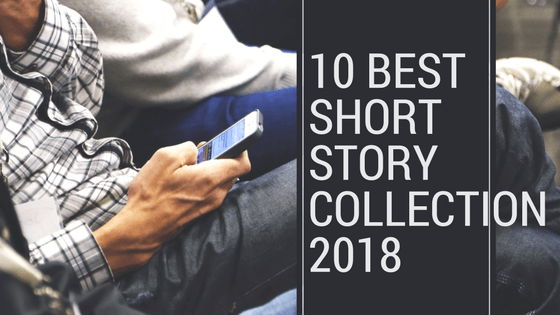
What Makes The 10 Best Short Story Collection 2018?
The best short stories can can be intoxicating but a best short story collection can completely engulf your life. You start off with a short story over lunch. It seems harmless enough. You can knock back your ham and salad sandwich on rye while escaping through the fast paced words of a short piece or novella, soaking up the sun in your city’s lush green park. All seems very innocent.
Then you become engrossed in the story. You quickly devour the 1000 word piece or scramble through the 10,000 word novella. The author hooks you. Worse still you become addicted. You’re looking for the next short read by your new escape artist. Damn your alarm buzzes and it’s back to work. Your anxiety levels rise. It’s 24 hours to your next lunch break.
Then utopia hits. There’s a train ride home tonight. You need another fix but just one short story won’t feed your addiction. You’re on the train for an hour. You don’t want to look like a crazy person on the subway (although you may fir in) so you hit Amazon during your afternoon tea break.
Whola! You discover your author friend has a series and his short sties are available in the best short story collection 2018. With one click you hit buy. Your stress levels drop and you spend the rest of the afternoon in anticipation of a great train ride home that night.
So what’s in the best short story collection 2018 that’s going to rock your world:
- No Middle Name – The Complete Collected Jack Reacher Short Stories by Lee Child

No Middle Name begins with “Too Much Time,” a brand-new work of short fiction that finds Reacher in a hollowed-out town in Maine, where he witnesses a random bag-snatching but sees much more than a simple crime.“Small Wars” takes readers back to 1989, when Reacher is an MP assigned to solve the brutal murder of a young officer found along an isolated forest road in Georgia—and whose killer may be hiding in plain sight.In“Not a Drill,” Reacher tries to take some downtime, but a pleasant hike in Maine turns into a walk on the wild side—and perhaps something far more sinister.“High Heat” time-hops to 1977, when Reacher is a teenager in sweltering New York City during a sudden blackout that awakens the dark side of the city that never sleeps. Okinawa is the setting of “Second Son,” which reveals the pivotal moment when young Reacher’s sharp “lizard brain” becomes just as important as his muscle.In “Deep Down,” Reacher tracks down a spy by matching wits with four formidable females—three of whom are clean, but the fourth may prove fatal.Rounding out the collection are “Guy Walks into a Bar,” “James Penney’s New Identity,”
“Everyone Talks,” “The Picture of the Lonely Diner,” “Maybe They Have a Tradition,” and “No Room at the Motel.”No suitcase. No destination. No middle name. No matter how far Reacher travels off the beaten path, trouble always finds him. Feel bad for trouble.
- Dead Set – The Complete Jack Creed Short Stories Collection by C T Mitchell

Top Selling Mystery-Get ready for the ultimate Jack Creed adventure: a thrilling box set of seven previously published mystery novellas, together for the first time in one pulse-pounding short story anthologies and collections from C T Mitchell. Every single Jack Creed short story written by Australian author C T Mitchell is here. Murder mystery books at their psychologically chilling best. Action & adventure short stories with a big finish. A murder mystery series where you won’t pick the endings.Dead Shot–48 hours to stop a killer or witness Australia’s first mass university shootingDead Ringer –Ten fingers and toes sadistically broken. Why?Dead Wrong – Society is broken when trust is broken. A 30 year old secret reveals the shocking truth.
Dead Boss – A narcissistic boss – thought he could take whatever he wanted. But not everyone agreedDead Stakes – A Malaysian casino tycoon, a greedy property developer and a dead chef. What’s the connection
Dead Lucky – Winning Lotto can be deadly
Dead Silence – Hookers, drugs and a dead Mayor. The a video tape surfaces
Enjoy these top-rated mystery-thriller books FREE as part of your Kindle Unlimited Prime Subscription. You can read the ebooks on your Amazon Kindle Fire, on a computer via Kindle Cloud Reader or on any smartphone or tablet with the free Kindle reading app. The best short story collection continues.
3.The Refugees by Viet Thanh Nguyen

The Refugees is a collection of perfectly formed stories exploring questions of immigration, identity, love, and family.The stories were written over a period of twenty years by Viet Thanh Nguyen, a Vietnamese-American novelist and short-story writer, the winner of the 2016 Pulitzer Prize for Fiction.In the collection we follow a young Vietnamese refugee who suffers profound culture shock when he comes to live with two gay men in San Francisco, a woman whose husband is suffering from dementia and starts to confuse her for a former lover, and a girl living in Ho Chi Minh City whose older half-sister comes back from America having seemingly accomplished everything she never will.
4.The Collected Stories By Jean Rhys

Jean Rhys was a Dominican-born British writer who was better known for her longer works, especially her novel Wide Sargasso Sea which she wrote as a prequel to Charlotte Brontë’s Jane Eyre. This new Penguin edition collects all of her stories – stories in which she deals with diverse but almost exclusively sombre topics such as suicide, alcoholism, loneliness, lovelessness and poverty.
The stories span several geographical as well as thematic frontiers – wherever her characters go they find little but callous characters in impersonal cities where women are ignored or maligned, expected to “grow another skin or two” and “sharpen” their “claws” if they want to get on. Among the more solemn of recent short story collections, this book fully exhibits Rhys’s extraordinary talent for prose without which these sullen stories would be unreadable.
5.Trigger Warning by Neil Gaiman
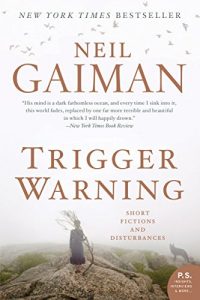
Multiple award winning, #1 New York Times bestselling author Neil Gaiman returns to dazzle, captivate, haunt, and entertain with this third collection of short fiction following
Smoke and Mirrors and Fragile Things—which includes a never-before published American Gods story, “Black Dog,” written exclusively for this volume.In this new anthology, Neil Gaiman pierces the veil of reality to reveal the enigmatic, shadowy world that lies beneath.
Trigger Warning includes previously published pieces of short fiction—stories, verse, and a very special Doctor Who story that was written for the fiftieth anniversary of the beloved series in 2013—as well “Black Dog,” a new tale that revisits the world of American Gods, exclusive to this collection.
Trigger Warning explores the masks we all wear and the people we are beneath them to reveal our vulnerabilities and our truest selves. Here is a rich cornucopia of horror and ghosts stories, science fiction and fairy tales, fabulism and poetry that explore the realm of experience and emotion. In Adventure Story—a thematic companion to The Ocean at the End of the Lane—Gaiman ponders death and the way people take their stories with them when they die. His social media experience A Calendar of Tales are short takes inspired by replies to fan tweets about the months of the year—stories of pirates and the March winds, an igloo made of books, and a Mother’s Day card that portends disturbances in the universe.
Gaiman offers his own ingenious spin on Sherlock Holmes in his award-nominated mystery tale The Case of Death and Honey. And Click-Clack the Rattlebag explains the creaks and clatter we hear when we’re all alone in the darkness.A sophisticated writer whose creative genius is unparalleled, Gaiman entrances with his literary alchemy, transporting us deep into the realm of imagination, where the fantastical becomes real and the everyday incandescent. Full of wonder and terror, surprises and amusements,
Trigger Warning is a treasury of delights that engage the mind, stir the heart, and shake the soul from one of the most unique and popular literary artists of our day.
6.Brides of Grasshopper Creek by Faith

Book 1: Mail Order Bride Hannah: Hannah is thrilled to finally be on her way to the Frontier. She and her new husband Bradley have been planning this trip for as long as they have been planning their lives together it seems, and now that they’ve left Independence, Missouri on the wagon train west, it appears that all of their dreams are coming true.Within just a few short weeks of leaving, however, the harsh realities of life on the wagon train strike Hannah hard and she is forced to realize that the adventure she envisioned with Bradley is not at all what it seemed. Will Hannah overcome hardship when her adventure out west takes a tragic turn for the worse?
Book 2: Mail Order Bride Caroline: The Lord guides Caroline to an ad in the newspaper from a gold miner in Bannack who is searching for a lovely woman to become his bride. Soon, she joins the wagon train and anxiously makes the journey out west to start her new life.When she arrives, however, she discovers that the man she chose may not be the man she thought he was. She must decide where her loyalties lie—and if she can find it in herself to look beyond Bailey’s past and accept him for the man he is today.
Book 3: Mail Order Bride Louisa: After the death of her sweetheart, Louisa feels that there is nothing left in life for her, and wonders what she could possibly do to fill the years that lie ahead. When her sister suggests for Louisa to become a mail order bride for one of the men in the frontier, Louisa is appalled, but with the prospect of her sister and brother leaving on the wagon train with their cousins, Louisa knows that she must make the decision to either be left alone without any relatives and only her painful memories, or to enter marriage with a man she doesn’t know.
Book 4: Mail Order Bride Emily: Emily has never quite fit in with the rest of the high society young women who are supposed to be her peers. Raised in privilege—and expected to live up to the part now that she is old enough to marry—Emily cares more about her dream of becoming a teacher than the idea of hosting fancy tea parties and being courted by potential suitors. Feeling that she cannot continue being told what to do any longer, Emily makes the bold decision to go out west so that she can start a school and teach the children of the Frontier. In order to fulfill her dream, however, she must become a mail order bride.
Book 5: Mail Order Bride Charlotte: After the death of their parents, Charlotte and her brother Victor only have each other left in the world. Well past marrying age at thirty years old, Charlotte has nearly resigned herself to spending her life taking care of Victor when she suddenly discovers that he has been planning for them to move away from Philadelphia and seek out their futures in the Frontier town of Bannack. Though Victor refuses to admit it, Charlotte knows that having a single sister following him around is limiting to him, so she decides to take responsibility for herself and find a man who is looking for a wife.
Book 6: Mail Order Bride Betsy: Betsy always knew that love would find her eventually, and until then, she would be happy watching the young men who lived in her mother’s boarding house court their sweethearts on the front porch. Everything seemed perfect until the War came too close to home, and what was once an elegant and privileged boarding school became a bloody hospital. Left the suffer the aftermath, Betsy decides that her only hope is to get out of her hometown and go as far away as she could. In order to do that, however, she would have to find a husband.
7. 99 Stories of God by Joy Williams
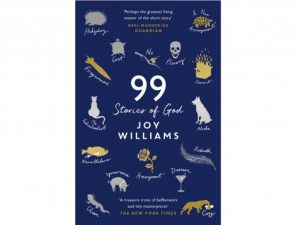
Need a heavenly touch to add to your best short story collection? Despite their brevity, short stories are often considerably denser than novels. Packed with meaning and often intentionally elusive, it is often difficult to read a collection cover to cover and Joy Williams’s latest collection of stories is exactly this type.
Williams is an American writer whose novels and story collections have been nominated for the Pulitzer Prize and several other prestigious awards. The bizarre 99 Stories of God is full of Kafka-style micro-fictions that take minutes, hours or even days to properly process. Williams’ paragraph- or sentence-long “stories” are unusually inscrutable, lacking entirely in narrative and often austere in language.
The source of their allure is puzzling, but it is strangely fulfilling to decipher a story’s meaning after it has been sitting in the back of your mind for some time (which they do). One of the more curious recent collections,
99 Stories of God is a clever if occasionally frustrating exercise in short fiction.
8.Men Without Women by Haruki Murakami
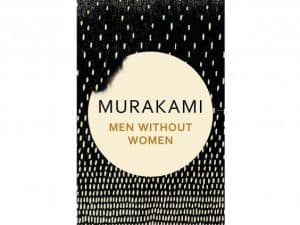
A best short story collection with a Japanese flavour. Haruki Murakami needs little introduction: a literary sensation abroad as much as in his native Japan, he has won multiple international awards for his novels such as Norwegian Wood and 1Q84.
In a 2004 interview with The Paris Review, Murakami remarked that one of the best things about writing books “is that you can dream while you are awake”. The dreamlike quality of the stories in Men Without Women is undoubtedly one of its chief attractions.
Murakami’s womenless men live in perpetual daydreams, a state of mind often prompted by a loss of some kind. In one story, for example, an ageing plastic surgeon grows obsessed with a younger, idealised woman whose perfection causes him to fade, quite literally, into nothingness. Murakami’s latest is a hypnotising study of male loneliness.
10. Cozy Mysteries 12 Book Box Set by Hope Callaghan
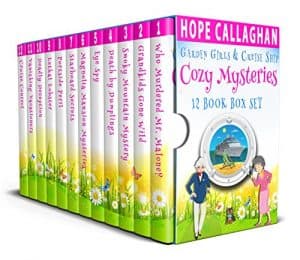
Book 1-Who Murdered Mr. Malone? Nothing exciting ever happens in the small town of Belhaven. Nothing that is, until a body was found in the woods behind the local elementary school.With the entire town in an uproar, “Garden Girl” Gloria Rutherford makes it her personal mission to find the killer or killers and solve the mystery with some help from her friends.With a little amateur detective work, Gloria is able to uncover enough clues that point right to the murderer.
She’s about to discover, however, things aren’t always as clear cut as they would appear.
Book 2-Grandkids Gone Wild” Garden Girl” Gloria Rutherford, has her hands full. Her mischievous and energetic grandsons are coming for a weekend visit. To top things off, she discovers someone is living in her barn. But who and why? As this amateur sleuth investigates what’s going on in her own backyard, another murder victim turns up in their sleepy little town. Hot on the trail of a murderer, trying her best to make sure her grandkids don’t end up in the ER and facing a budding romance, Gloria and her small town of Belhaven are once again about to be turned upside down.
Book 3-Smoky Mountain Mystery Life is good for “Garden Girl” Gloria Rutherford. Spring has finally sprung, love is in the air, and no dead bodies have turned up in the small town of Belhaven…lately.It seems as if it’s almost too good to be true. Just as Gloria starts to get settled into her familiar routine, she receives a mysterious message from her older sister, Liz.Certain that her sister, the drama queen, is once again bent on turning Gloria’s life upside down for no good reason, she almost chooses to ignore the dire message that she may be in danger.
When a key to her sister’s place shows up in her mailbox after Liz mysteriously vanishes, Gloria jumps in with both feet to track her down.
Crisscrossing the country with one of the other Garden Girls in tow, the two amateur sleuths find themselves on an adventure of a lifetime.
Gloria soon discovers her sister’s mysterious disappearance is the least of her worries. + nine more best short stories
10. Best British Short Stories 2017 by Nicholas Royle
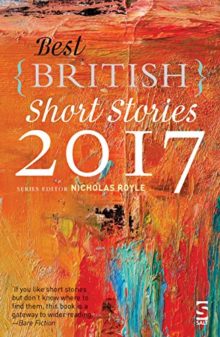
Best British Short Stories invites you to judge a book by its cover – or more accurately, by its title.This new series aims to reprint the best short stories published in the previous calendar year by British writers, whether based in the UK or elsewhere.
It includes stories by Daisy Johnson and James Kelman, among others. The editor’s brief is wide ranging, covering anthologies, collections, magazines, newspapers and websites, looking for the best of the bunch to reprint all in one volume.
The best short story collection offers a varied mix to cover all tastes and should keep the reader content in 2018 – for at least some part of it.
Come back to www.bestshortstorycollection.com for regular updates.Share![]()
![]()
![]()
![]()
![]()
![]()
How I Wrote Twenty Five Short Stories In Twenty Five Months
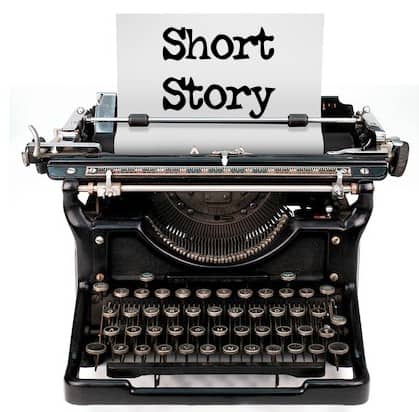
Have you ever wanted to write short stories but procrastinated for so long you never got started? You’re not alone. Millions of people around the world want to write a book but through a number of obstacles never get started. I understand their pain. I was a ‘fully paid up, card carrying member’ of the ‘one day’ club. But one day, things changed. I decided to write my short stories. Here’s my step by step approach on how I wrote 25 short stories in just 25 months AROUND a full time job.
I wanted to be a writer
Actually more than that. I wanted to be a published author. See my books on Amazon; maybe even in book stores. That would be cool I thought. I had seen plenty of famous authors living in country estates and driving flashy European cars. That was the life for me. BUT
I had doubts
Thirty years of procrastination can do that to you. I doubted if I could actually write a book. At best I was a B+ English student at school. My vocabulary existed of either one syllable or possibly two syllable words. My A grade mates knew words as long as my arm – and they could spell them. Pretty damn scary to me.
I also doubted that once I did actually write the book, who would publish it. I was a nobody and no big name publisher would take a chance on me.
But assuming I could overcome these hurdles, who the heck would read my book. And would they think it was any good or at least ok. I don’t know about you but these fears were very real to me. I didn’t want to put a ton of time into something and end up failing – again. I had started many only ventures before and they were all disastrous.
However I couldn’t just sit back and do nothing either. I needed to bite the bullet, face up to my fears and give this a crack. I had been a fan of crime writers for years, so mystery books would be my genre. It is a big genre with very successful authors in it such as James Patterson, Lee Child and Peter James to name just a few. Why should these guys have all the market. I thought “It’s not fair that they hog all the market. I need to get my books out as well”
I needed support – a guide – somebody who was publishing books successfully
I did some research. I found an online writing club who’s founder understood my problems. He knew my fears about writing a book and publishing it were very real. He had coached hundreds of would-be-authors before. Some had got onto the dizzy heights in the book world; while others were happy just to get a book out; something that could sit on the coffee table and perhaps a few friends may buy.
I liked his approach but I definitely wanted to be in the ‘James Patterson graduation school’
He gave me some great advice and we worked out a plan
- Write often
This would ensure my book got finished. Sounds basic but it’s actually……true. Also flexing the writing muscle also steers an author toward a path of improvement – hopefully. - Write to your strengths
Having a full time job, I could not see myself knocking out a ‘1000 page mystery book monster’ nor had I the experience to do that. So I decided to play to my strengths. I could write 1000 words a day, before work and after dinner. In ten days I would have a short story done. In a month two or three short reads. Not bad, but as it turned out not a reality. Over 25 months I averaged to pen 25 books and got them published. - Self publish
Trying to get a traditional publishing contract would take time. Publishers make authors jump through a lot of hoops. The can be very demanding and my patience wouldn’t wear their pompous attitudes. Amazon had changed the game some years back. You could now write a book in quick time, outsource the book cover design, book formatting and editing, and upload the finished product yourself. Amazon can take up to twelve hours to approve your work but you are then a published author. This was my best option. Another box ticked.
Now it was action time
Every morning I woke at five and wrote to seven. I googled, editors, book cover designers, formatters and a whole lot of other stuff. I found courses, read marketing material and hung out in the my online writing group on their Facebook page and asked a ton of ridiculously stupid questions.
But people were kind. They gave away their tips for free. I listened to those who were actually doing what I wanted to do and applied their advice. I engaged others to do my covers. Sure not everybody was brilliant. I did lose some money but eventually I’ve found two exceptional designers for all my short stories. Through trial and error, I honed my online team. It’s an evolving group of professionals that will continue to grow and expand with me. I love them!
Life 25 books on = SUCCESS
IT’s pretty dam good. I’ve had nine books hit #1 Amazon US & UK within the mystery thriller and suspense genre. Over that time my social media following has exceeded 40,000 people. I have the best reader list of 10,000+ I chat with every single week. My author brand is moving forward.
In April 2017 Austin Macauly UK signed me and are producing Murder Secret into a paperback for me which will hopefully see it in book stores throughout the UK from early 2018.
Juggernaut India love mystery eBooks and has given me a 25 + book publishing contract which will expose me to a very exciting market from November 2017.
But
none of this would have happened if I had remained stuck. I never would have authored any books if I allowed my self doubt and fears rule my life. I’m glad I found a writing group, listened to their advice and actually got started. Without acting upon my dream I would now be sitting around saying “what if”. Twenty five short stories in twenty five months is just the beginning. I hope you act upon your dreams too.Share![]()
![]()
![]()
![]()
![]()
![]()
How To Write A Short Story By John Dufresne

John Dufresne Reveals The Secret On How To Write A Short Story
Fiction writer and professor John Dufresne offers some tips on how to write a short story and how to know when you’re on the right track. Dufresne was awarded a Guggenheim Fellowship in 2012 for his creative work, with includes four novels and the short story collections “The Way That Water Enters Stone” and “Johnny Too Bad.”
He has also written two books on the craft of fiction writing: “The Lie That Tells a Truth: a Guide to Writing Fiction” and “Is Life Like This? A Guide to Writing Your First Novel in Six Months.” Dufresne teaches creative writing at FIU
Short stories are the fabric of life because everybody likes a quickie
Short Stories: Where To Publish

Short stories are in plentiful demand. They fill a void in the market when long stories or books are too much to handle.
As an author short stories are a great way to hone your writing skills. They give an author additional exposure into the market and can supplement their income in between larger works. But where does an author go to submit his or her works.
Here’s a list of 50+ places I’ve complied from credible literary sources on where you should publish your short stories.
Short Stories – where you should publish
(sourced via Writer Life)
1. The New Yorker
Might as well start with a bang, right? Adding publication in The New Yorker to your portfolio puts you in a whole new league, though it won’t be easy. Author David. B. Comfort calculated the odds of an acceptance at 0.0000416 percent!
It accepts both standard short fiction as well as humorous short fiction for the “Shouts & Murmurs” section. No word counts are mentioned, though a quick scan of the column shows most pieces are 600 to 1,000 words.
Submission Guidelines: http://www.newyorker.com/about/contact
Deadline: Open
Payment: Huge bragging rights; pay for unsolicited submissions isn’t specified. Who Pays Writers lists several paid pieces, though as of this post’s publication, no rates specifically for short stories.
2. The Atlantic
Another highly respected magazine, The Atlantic publishes both big names and emerging writers in fiction and nonfiction. Submission guidelines advise, “A general familiarity with what we have published in the past is the best guide to what we’re looking for.”
Submission Guidelines: http://www.theatlantic.com/faq/#Submissions
Deadline: Open
Payment: Unsolicited submissions are generally unpaid, although if the editors choose your piece for online content, you may receive $100-$200 depending on genre and length.
3. The Threepenny Review
This quarterly arts magazine focuses on literature, arts and society, memoir and essay. Short stories should be no more than 4,000 words, while submissions to the “Table Talk” section (pithy, irreverent and humorous musings on culture, art, politics and life) should be 1,000 words or less.
Submission Guidelines: http://www.threepennyreview.com/submissions.html
Deadline: January to June
Payment: $400 for short stories; $200 for Table Talk pieces
4. Zoetrope: All-Story
Founded by Francis Ford Coppola and Adrienne Brodeur in 1997, Zoetrope: All-Story’s mission is “to explore the intersection of story and art, fiction and film” and “form a bridge to storytellers at large, encouraging them to work in the natural format of a short story.” Submissions should be no more than 7,000 words.
Submission Guidelines: http://www.all-story.com/submissions.cgi
Deadline: Open
Payment: None, but this magazine has discovered many emerging writers and published big names like Salman Rushdie and Gabriel García Márquez, so publication here could win you some serious prestige points.
5. One Story
One Story is just what the name says: a literary magazine that publishes one great short story every three to four weeks, and nothing more.
Its main criteria for a great short story? One “that leaves readers feeling satisfied and [is] strong enough to stand alone.” Stories can be any style or subject but should be between 3,000 and 8,000 words.
Submission Guidelines: http://www.one-story.com/index.php?page=submit
Deadline: September 1 to May 31
Payment: $500 plus 25 contributor copies
6. The Antioch Review
The Antioch Review rarely publishes more than three short stories per issue, but its editors are open to new as well as established writers. Authors published here often wind up in Best American anthologies and as the recipients of Pushcart prizes.
To make the cut, editors say, “It is the story that counts, a story worthy of the serious attention of the intelligent reader, a story that is compelling, written with distinction.” Word count is flexible, but pieces tend to be under 5,000.
Submission Guidelines: http://review.antiochcollege.org/guidelines
Deadline: Open except for the period of June 1 to September 1
Payment: $20 per printed page plus two contributor copies
More Short Stories Publications? Ok you asked for it…
7. AGNI
Thought-provoking is the name of the game if you want to get published in AGNI. Its editors look for pieces that hold a mirror up to the world around us and engage in a larger, ongoing cultural conversation about nature, mankind, the society we live in and more.
There are no word limits, but shorter is generally better; “The longer a piece is, the better it needs to be to justify taking up so much space in the magazine,” note the submission guidelines.
Submission Guidelines: http://www.bu.edu/agni/submit.html
Deadline: Open September 1 to May 31
Payment: $10 per printed page (up to a max of $150) plus a year’s subscription, two contributor’s copies and four gift copies
8. Barrelhouse
Published by an independent nonprofit literary organization, Barrelhouse’s biannual print journal and online issue seek to “bridge the gap between serious art and pop culture.” Its editors look for quality writing that’s also edgy and funny — as they say, they “want to be your weird Internet friend.”
There’s no hard word count, but try to keep your submission under 8,000 words.
Submission Guidelines: http://www.barrelhousemag.com/submissions
Deadline: Currently open for books, comics, and a few other categories. Check the webpage to see all open categories and sign up for the newsletter to learn as soon as new open categories are announced.
Payment: $50 plus two contributor copies (print journal); unpaid (online issue)
9. Cincinnati Review
The Cincinnati Review publishes work by writers of all genres and at all points of their careers. Its editors want “work that has energy,” that is “rich in language and plot structure” and “that’s not just ecstatic, but that makes is reader feel ecstatic, too.”
Fiction and nonfiction submissions should be no more than 40 double-spaced pages.
Submission Guidelines: http://www.cincinnatireview.com/#/submissions/guidelines
Deadline: August 15 to March 15
Payment: $25 per double-spaced page
10. The First Line
This cool quarterly is all about jumpstarting that pesky writer’s block. Each issue contains short fiction stories (300-5,000 words) that each begin with the same pre-assigned first line. You can also write a nonfiction critical essay (500-800 words) about your favorite first line from a piece of literary work.
If you really want to get ambitious, you can also write a four-part story that uses each of that year’s first lines (which is due by the next year’s spring issue deadline). To find each issue’s assigned first line, check out the submission guidelines below.
Submission Guidelines: http://www.thefirstline.com/submission.htm
Deadline: February 1 (spring); May 1 (summer); August 1 (fall); November 1 (winter)
Payment: $25 to $50 (fiction); $25 (nonfiction) plus a contributor’s copy
11. The Georgia Review
Another one high on the prestige list, The Georgia Review features a wide variety of essays, fiction, book reviews and more across a wide range of topics. You can read specific requirements for each in the submission guidelines below, but the common theme among them all is quality, quality, quality.
Bear in mind submitting requires a $3 processing fee if you’re not a subscriber.
Submission Guidelines: http://garev.uga.edu/submissions.html
Deadline: Open except for the period of May 15 to August 15
Payment: $50 per printed page
12. Boulevard Magazine
Boulevard Magazine is always on the lookout for “less experienced or unpublished writers with exceptional promise.” It accepts prose pieces (fiction and nonfiction) up to 8,000 words (note: no science fiction, erotica, westerns, horror, romance or children’s stories).
There is a submission fee of $3.
Submission Guidelines: http://www.boulevardmagazine.org/guidelines/
Deadline: Open October 1 to May 1
Payment: $100 to $300
13. Camera Obscura
Camera Obscura is a biannual independent literary journal that publishes contemporary literary fiction and photography. Fiction should be between 250 and 8,000 words, although its editors have made exceptions for the occasional “exceptional novella” between 12,000 and 30,000 words.
You can also try your hand at a “Bridge the Gap” piece, where you review the current photo gallery and construct a story that “Takes the reader on an unexpected journey from the first image to the next.”
Submission Guidelines: http://www.obscurajournal.com/guidelines.php
Deadline: Stay tuned to the guidelines page to find out when the next deadline is announced.
Payment: $1,000 to one featured writer published in each issue, as determined by the editors; all other contributors receive two copies of the issue in which they are published. The best Bridge the Gap piece receives $50.
14. Crazyhorse
Open to a wide variety of fiction from mainstream to avant-garde, Crazyhorse puts no limitations on style or form. If you’ve got something people haven’t seen before and won’t be able to forget, its editors are looking for it.
Crazyhorse also accepts nonfiction of any sort, including memoirs, journal entries, obituaries, etc. — we told you it’s open to anything! Keep your word count between 2,500 and 8,500 words.
Submission Guidelines: http://crazyhorse.cofc.edu/submit/
Deadline: Open for submissions from September 1 to May 31, except for the month of January (when it only accepts entries for the Crazyhorse Prizes)
Payment: $20 per printed page (up to a max of $200)
15. Story
Story Magazine is, you guessed it, all about the story, whatever shape it takes. Each issue is based around a theme, but its editors encourage writers to think outside the box when it comes to how to address that theme — fiction, nonfiction, hybrid forms, “hermit-crab essays” and more are all up for consideration.
Submission Guidelines: http://www.storymagazine.org/submit/
Deadline: Open January 1 to May 1 (print magazine); open February, April, June, August, and October (online)
Payment: Not specified
So you want more places to submit your short stories? Here you go….
16. Vestal Review
Prefer to keep your short stories extremely short? Vestal Review publishes flash fiction of no more than 500 words. Its editors are open to all genres except for syrupy romance, hard science fiction and children’s stories, and they have a special fondness for humor. R-rated content is OK, but stay away from anything too racy, gory or obscene.
Submission Guidelines: http://www.vestalreview.org/guidelines/
Deadline: Submission periods are February to May and August to November
Payment: Ten cents per word (for stories up to 100 words); five cents per word (101-200 words); three cents per word (201-500 words). “Stories of great merit” in their estimation can receive up to a $25 flat fee.
17. Flash Fiction Online
Flash Fiction Online allows for slightly longer flash stories — between 500 and 1,000 words. Its editors like sci-fi and fantasy but are open to all genres. As with Vestal, stay away from the heavier stuff like erotica and violence. As of March 1, 2015, FFO accepts previously published works.
Submission Guidelines: http://flashfictiononline.com/main/submission-guidelines/
Deadline: Open
Payment: $60 per story, two cents per word for reprints
18. Black Warrior Review
Black Warrior Review publishes a mix of work by up-and-coming writers and nationally known names. Fiction pieces of up to 7,000 words should be innovative, challenging and unique; its editors value “absurdity, hybridity, the magical [and] the stark.”
BWR also accepts flash fiction under 1,000 words and nonfiction pieces (up to 7,000 words) that examine and challenge beliefs and boundaries. There is a $3 submission fee.
Submission Guidelines: http://bwr.ua.edu/submit/guidelines/
Deadline: Submission periods are December 1 to March 1 and June 1 to September 1
Payment: A one-year subscription to BWR and a nominal lump-sum fee (amount not disclosed in its guidelines)
19. The Sun Magazine
The Sun Magazine offers some of the biggest payments we’ve seen, and while its guidelines specifically mention personal writing and provocative political/cultural pieces, they also say editors are “open to just about anything.”
Works should run no more than 7,000 words. Submit something the editors love, and you could get a nice payday.
Submission Guidelines: http://thesunmagazine.org/about/submission_guidelines/writing
Deadline: Open
Payment: A one-year subscription plus $300 to $2,000 (nonfiction) or $300 to $1,500 (fiction)
20. Virginia Quarterly (VQR)
A diverse publication that features both award-winning and emerging writers, VQR accepts short fiction (2,000 to 8,000 words) but is not a fan of genre work like romance, sci-fi, etc. It also takes nonfiction (3,500 to 9,000 words) like travel essays that examine the world around us.
Submission Guidelines: http://www.vqronline.org/about-vqr/submissions
Deadline: Submission periods are June 15 to July 31 and October 1 to November 15. VQR also accepts nonfiction pitches from June 15 to December 1.
Payment: Generally $1,000 and above for short fiction and prose (approximately 25 cents per word) with higher rates for investigative reporting; $100 to $200 for content published online.
21. Ploughshares
Ploughshares’ award-winning literary journal is published by Boston’s Emerson College. They accept fiction and nonfiction under 6,000 words and require a $3 service fee if you submit online (it’s free to submit by mail, though they prefer digital submissions).
Submission Guidelines: https://www.pshares.org/submit/journal/guidelines
Deadline: June 1 at noon EST through January 15 at noon EST
Payment: $25 per printed page (for a minimum of $50 per title and a maximum of $250 per author).
22. Shimmer
Shimmer “encourages authors of all backgrounds to write stories that include characters and settings as diverse and wondrous as the people and places of the world we live in.”
Traditional sci-fi and fantasy need not apply; Shimmer’s editors are after contemporary fantasy and “speculative fiction” with strong plots, characters and emotional core — the more unique the better. Keep your stories under 7,500 words (4,000 words is around the sweet spot).
Submission Guidelines: http://www.shimmerzine.com/guidelines/fiction-guidelines/
Deadline: Opens for submissions on September 4
Payment: Five cents per word (for a minimum of $50)
23. Daily Science Fiction
Sci-fi and fantasy writers, this one’s for you. Daily Science Fiction is looking for character-driven fiction, and the shorter, the better. While their word count range is 100 to 1,500 words, they’re especially eager to get flash fiction series (several flash stories based around a central theme), science fiction, fantasy, and slipstream.
Submission Guidelines: http://dailysciencefiction.com/submit
Deadline: Open except for the period between December 24 to January 2
Payment: Eight cents per word, with the possibility of additional pay for reprints in themed Daily Science Fiction anthologies
Still need more places to submit your short stories? Try these
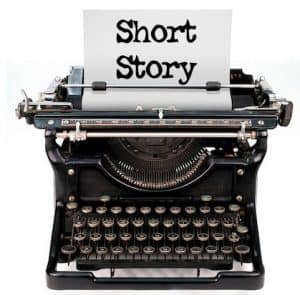
(thanks to Jacqui Bennett Writers Bureau UK)
Aesthetica The UK’s cultural arts magazine that features writing, art, music and film. It reports on the arts and publishes features, interviews, news, articles and reviews that stir the imagination around current themes. Website: www.aestheticamagazine.com
Any Dream Will Do Review Dr. Jean M. Bradt, publisher and chief editor of the Any Dream Will Do Review, has created a new story genre, Fiction in the Raw, and she seeks new or accomplished authors who wish to try writing in this genre. Fiction in the Raw is fiction that contains raw emotions (not raw sex, which will be rejected). Writers of Fiction in the Raw are unique in that they are not afraid to honestly expose their own deepest emotions. Can you meet this challenge? See website for submission guidelines: http://willigocrazy.org/Ch09a.htm
Aquila Dedicated to encouraging children aged 8-13 to reason and create, and to develop a caring nature. Short stories and serials of up to 4 parts. Occasional features commissioned from writers with specialist knowledge. Approach in writing with ideas and sample of writing style, with sae. Length: 700-800 words (features), 1000-1100 words (stories or per episode of a serial). Illustrations: colour and b&w, cartoons. Payment: £75 (features); £90 (stories), £80 (per episode). Jackie Berry, New Leaf Publishing Ltd, PO Box 2518, Eastbourne, East Sussex BN21 2BB. Tel: 01323 431313. Fax: 01323 731136. Email: info@aquila.co.uk Website: www.aquila.co.uk
The Artillery of Words A new online magazine to showcase budding writers. All submissions are welcome – anything from poems to short stories and fiction to non-fiction. Plays and children’s literature are also welcome – the word limit is 1,500. Website: http://theartilleryofwords.weebly.com
Black Gate Magazine is looking for submissions of adventure-oriented fantasy fiction suitable for all ages, including urban fantasy, sword and sorcery, dark fantasy/horror, romantic fantasy. Pays six cents a word for up to 7,000 words, $420 for 7,000-14,000 words, and three cents a word for longer works; buys First North American serial and electronic publication rights. Guidelines: submissions@blackgate.com or the website (www.blackgate.com). Editor: John O’Neill with New Epoch Press, Attn: Submissions Dept, 815 Oak Street, St Charles, IL 60174, USA.
Bloodlust UK Vampire fiction. Details: http://www.bloodlust-uk.com
Carillon Magazine Stories, articles, fillers (maximum 1,400 words). Quality work only. Website: http://www.carillonmag.org.uk/index.html
Chapman Scotland’s quality literary magazine. Features poetry, short works of fiction, criticism, reviews and articles on theatre, politics, language and the arts. Unsolicited material welcome if accompanied by s.a.e. Approach in writing unless discussion is needed. Priority is given to full-time writers. Features: Topics of literary interest, especially Scottish literature, theatre, culture or politics. Maximum 5000 words. Fiction: Short stories, occasionally novel extracts if self-contained. Maximum 6000 words. Special Pages: Poetry, both UK and non-UK in translation (mainly, but not necessarily, European). Payment by negotiation. Editor: Joy M. Hendry, 4 Broughton Place, Edinburgh EH1 3RX. Tel: 0131 557 2207. Fax: 0131 556 9565 Email: editor@chapman-pub.co.uk. Website: www.chapman-pub.co.uk
Countryside Tales Your story can be in any genre as long as it has a ‘countryside’ feel or setting. For example, you could write a crime story about a village policeman or a romantic tale set in the country. Your story should contain interesting and believable characters and have a beginning, middle and satisfactory conclusion. If there is a ‘twist in the tale’, it should not be obvious.Fiction, poetry, articles, writing competitions. New writers encouraged. Details: Countryside Tales, Park Publications, 14 The Park, Stow on the Wold, Cheltenham, Glos GL54 1DX; contact editor David Howarth (tel: 01451 831053) to discuss ideas, or send sae for guidelines. Email: enquiries@parkpublications.co.uk Website: www.parkpublications.co.uk
Crystal, The Magazine for Writers Stories (true and fiction), poems, articles, fillers. No bad language or erotica. Regular features: writing with flair, wordsmithing, readers’ letters, competitions. Occasionally Subscribers’ News and Advertising. One sample copy free. Visit website for details.
Dark Tales Created as an outlet primarily for unpublished writers of sci-fi, dark fantasy and horror short stories. Published stories are the winners and shortlisted entries from a quarterly competition. Fiction should be strong on characterisation as well as original, thought-provoking ideas. Website: http://www.darktales.co.uk
Descant An established, Canadian literary magazine. Descant considers submissions of poetry (submit about six poems), short stories, novel excerpts, plays, essays, interviews, musical scores and visual presentations. Standards for acceptance are high. They receive a large number of submissions every month – please send only your best, carefully edited work. No submission may be under consideration by another publisher, nor can it have been previously published. Please note that it can take up to 12 months to hear back regarding your submission. More information on the website (http://www.descant.ca). Submission Guidelines: http://www.descant.ca/submit.html
The Edge Wants modern/psychological/urban/imaginative science fiction/horror/crime/erotic fiction. Enclose sae/IRCs. No reprints or email submissions. Editor: Dave Clark, Unit 138, 22 Notting Hill Gate, London, W11 3JE. Website: www.theedge.abelgratis.co.uk
Every Day Fiction Every day, we publish a new flash fiction story (1000 words or fewer), perfect for your coffee break, your commute, or whenever you have a few minutes for yourself. The maximum 1000 word count is firm. We pay $3 US per story, plus an additional $1 US if the story is selected for our annual print anthology. Details: http://www.everydayfiction.com
Fleeting Magazine ‘The Best Short Writing in the World’ – competitions, photography, et cetera. Website: http://fleetingmagazine.com
Historical Novel Society See Solander below.
Interzone: Science Fiction & Fantasy Unsolicited mss welcome ‘from writers who have a knowledge of the magazine and its contents’. Website: http://ttapress.com/interzone
Irish Pages is a biannual journal, edited in Belfast and publishing, in equal measure, writing from Ireland and overseas. Its policy is to publish poetry, short fiction, essays, creative non-fiction, memoir, essay reviews, nature-writing, translated work, literary journalism, and other autobiographical, historical, religious and scientific writing of literary distinction. There are no standard reviews or narrowly academic articles. http://www.irishpages.org/
Ken*again, the literary magazine A quarterly, nonprofit e-zine presenting a hearty, eclectic mix of prose, poetry, art and photography: accessible, obscure, soothing, disturbing. We do not pay cash but we publish authors’ bios and often link to their sites. Prose and poetry may be sent either in the body of an email or by attaching MS-Word Documents. Art should be attached in jpg format or we should be directed to Artists’ and Photographers’ websites. Edited and Published by John Delin and Pamela Boslet Buskin. Website: http://kenagain.freeservers.com Guidelines: http://kenagain.freeservers.com/contact.html
The Lady Not currently accepting unsolicited short stories. Website: http://www.lady.co.uk/
Mslexia Women writers’ magazine – always with plenty going on. Frequent competitions. Highly recommended. Submissions to: Mslexia, PO Box 656, Newcastle upon Tyne, NE99 1PZ; tel: 0191 233 3860; e-mail (for information only, no submissions):postbag@mslexia.co.uk Website: www.mslexia.co.uk
My Weekly Check latest edition of magazine for submission details.
New Welsh Review Welsh literary magazine in the English language. Welcomes material of literary and cultural interest to Welsh readers and those with an interest in Wales. Website: http://www.newwelshreview.com
The People’s Friend Entertaining, optimistic stories are required by this publication – throw in a touch of nostalgia and let your fictional world move more slowly than today’s and you’ll stand a far better chance of succeeding. Stories should usually be between 1,000 and 4,000 words, but there are occasionally slots for shorter pieces of 500 to 1,000 words.. Website: http://www.thepeoplesfriend.co.uk/
Prole is a new publication that focuses on accessible poetry, short fiction and creative nonfiction. We aim to publish three times a year. If money is made, contributors will be paid a share. Website: http://www.prolebooks.co.uk/index.html
Riptide New short fiction by both established and emerging writers. We are committed to providing a forum for high quality, innovative fiction, expanding the readership of the short story genre and enhancing its standing. We invite work by prominent authors who believe in the continuing importance of the short story, but we aim to include new voices in every issue. Details: http://www.riptidejournal.co.uk
Scribble Quarterly short story magazine now in its seventh year of publication. Offers prizes of cash prizes for the best three stories in each issue of the magazine, on any subject, up to 3,000 words. Details and guidelines: Send sae to: Scribble, Park Publications, 14 The Park, Stow on the Wold, Glos GL54 1DX. Website: www.parkpublications.co.uk
Sniplits publish short stories of up to 9,000 words in audio. Website:http://www.sniplits.com. Guidelines and submissions calendar in Authors Room.
Solander Payments are being offered for publication in the Historical Novel Society’s magazine, Solander. Many contributors published in Solander have found agents and gone on to further success. Any theme or period is acceptable, and the editor is prepared to read time-slip or alternative history as well as ‘straight’ historical fiction. All genres will be considered and submissions are not restricted to members, although contributors should read a copy of the magazine first. Membership Details on Website: http://www.historicalnovelsociety.org/main.htm
Spec Magazine A Canadian magazine seeks fantasy, horror, ghost and fairy stories; both poetry and prose. Guidelines and pay rates: http://www.onspec.ca/ or contact Spec Magazine, Box 4727, Edmonton Alberta, Canada T6E 5G6.
Stickman Review (www.stickmanreview.com) is an online literary magazine published twice yearly. Editors Anthony Brown and Darrin English welcome e-mail submissions of literary fiction (fiction@stickmanreview.com), non-fiction (nonfiction@stickmanre view.com) and poetry (poetry@stickmanreview.com). Although they do not rule out genre stories, the editors emphasise that this is a literary magazine, and their major interest is the quality of the literary style. Contact: Stickman Review, 2890 N. Fairview Dr, Flagstaff, Arizona 86004, USA.
The Strand Magazine is a quarterly print publication offering a variety of crime short stories, book reviews, articles on the mystery genre, and interviews with prominent authors or people with a decided ‘criminal’ interest. Managing Editor Andrew F Gulli looks for tales written in the best traditions of the classic writers. Weave a mystery, sprinkle it with red herrings, and introduce characters with whom the reader can sympathise. Explicit sex or violence are not welcome. Stories of 2,000 to 6,000 words should be submitted by mail to: The Strand Magazine, PO Box 1418, Birmingham, MI 48012-1418, USA. Website: http://www.strandmag.com/
Tin House (http://www.tinhouse.com/) is a quarterly literary magazine that publishes fiction, non-fiction, and poetry. It accepts submissions from around the world. Non-fiction articles include interviews with literary figures and essays on writing and literature. Pays from $200 for short stories and $50 for poetry. Contact: Tin House, PO Box 10500, Portland, Oregon OR 97296-0500, USA for further information (enclose sae and IRC), or visit the website for fuller guidelines.
Ulster Tatler Articles of local interest and social functions appealing to Northern Ireland’s ABC1 population. Welcomes unsolicited material; approach by phone or in writing in the first instance. Fiction: Max. 3000 words. Payment £150. Editor: Richard Sherry, 39 Boucher Road, Belfast BT12 6UT. Tel: 01232 681371. Fax: 01232 381915 Email: ulstertat@aol.com Website: http://www.ulstertatler.com
Vintage Script is looking for short stories and articles that are original and well-written, and must be on an historical theme. Short stories and longer articles should be no longer than 2,000 words. Also interested in shorter articles of 500-1,000 words. Contributions should not have been published elsewhere. Look at the Submissions page on the website if you have a historical story or article to share. Website: http://www.vintagescript.co.uk/
Woman’s Weekly Full submission guidelines: http://www.goodtoknow.co.uk/family/471247/woman-s-weekly-fiction-guidelines
Woman’s Weekly Fiction Special See previous entry.
Yours A fortnightly magazine covering general women’s interest and lifestyle. Aimed at readers over fifty. Publishes general interest short fiction. Website: http://www.yours.co.uk Email: yours@emap.com Features Editor: Caroline Chadderton, Bretton Court, Bretton, Peterborough, PE3 8DZ

